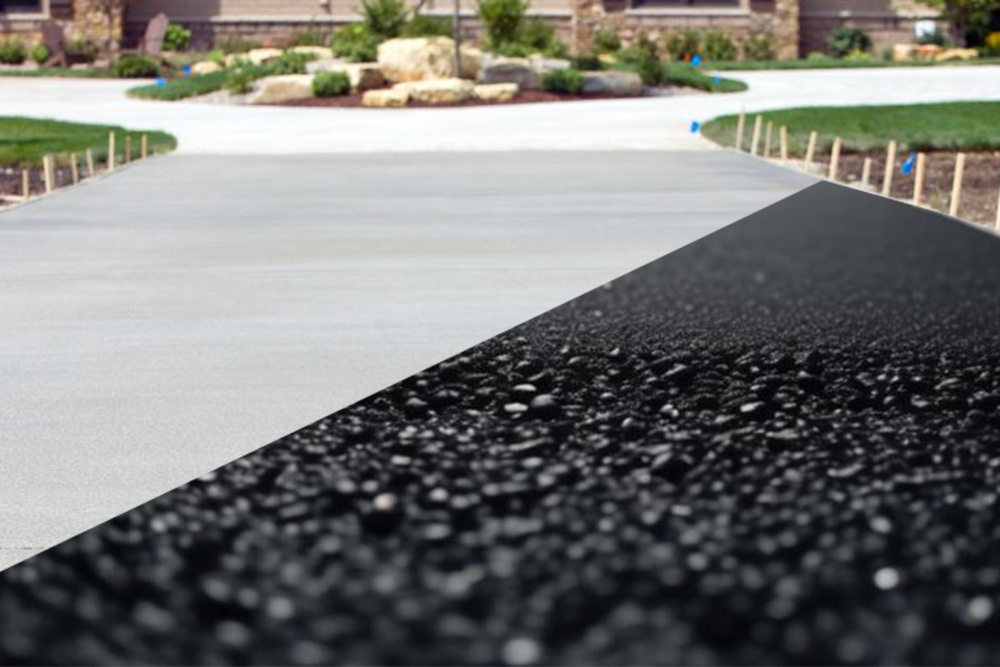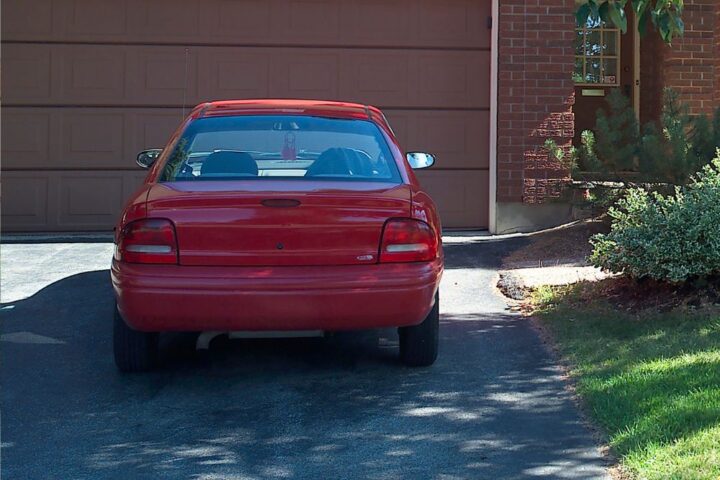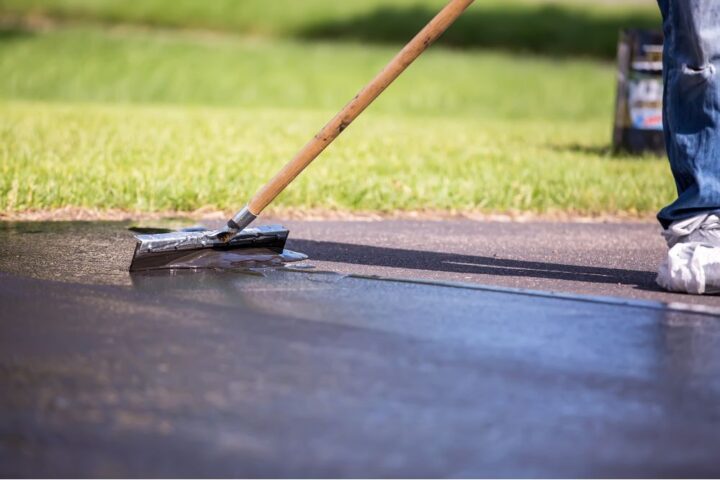When it comes to choosing between bitumen and concrete driveways in Melbourne, there are several factors to consider. From durability and cost to maintenance requirements and aesthetics, the decision can be a challenging one.
Both options have their advantages and disadvantages, making it crucial to weigh the pros and cons before making a final choice.
In this discussion, we will delve into the key considerations for deciding which type of driveway is better suited for Melbourne’s unique requirements. So, whether you are looking for a long-lasting solution, a cost-effective option, or simply want to enhance the curb appeal of your property, stay tuned as we explore the merits of bitumen and concrete driveways in Melbourne.
Durability of Bitumen Vs Concrete Driveways
When comparing the durability of bitumen driveways to concrete driveways in Melbourne, it is evident that concrete driveways outperform bitumen driveways due to their superior resistance to damage and longevity. Concrete driveways are known for their exceptional durability and can last for decades without significant wear and tear. On the other hand, bitumen driveways require more frequent maintenance and repairs due to their susceptibility to damage over time.
Concrete driveways have better resistance to extreme temperatures and are less prone to cracking, making them suitable for Melbourne’s climate. The composition of concrete allows it to withstand the expansion and contraction caused by temperature fluctuations, ensuring its longevity and structural integrity. In contrast, bitumen driveways are more prone to wear and tear and may require resurfacing or replacement every 15-20 years.
Furthermore, concrete driveways offer a cost-effective solution in the long run. With proper maintenance, concrete driveways can last up to 30 years or more, while asphalt driveways may need to be resurfaced or replaced more frequently. This longevity makes concrete driveways a more durable and cost-effective choice for homeowners in Melbourne.
Cost Comparison: Bitumen Vs Concrete Driveways
Comparing the costs of bitumen and concrete driveways reveals important considerations for homeowners in Melbourne. While bitumen driveways generally have a lower upfront cost compared to concrete driveways, the long-term expenses should also be taken into account. The cost of bitumen can fluctuate based on global oil prices, making it potentially more expensive for repairs if oil prices increase. On the other hand, concrete driveways may have a higher initial cost but can save on long-term maintenance expenses.
To highlight the cost comparison between bitumen and concrete driveways, the following table provides a breakdown of the key considerations:
| Bitumen Driveways | Concrete Driveways | |
|---|---|---|
| Cost | Lower upfront cost | Higher initial cost |
| Repair | Potentially more expensive if oil prices increase | Less frequent maintenance and repairs |
| Long-term Savings | Potential cost savings in the long run | May save on maintenance expenses |
Homeowners in Melbourne may prefer bitumen driveways due to their affordability, especially considering the potential cost savings in the long run. However, it is important to note that concrete driveways may require less frequent maintenance and repairs, providing savings in the long term.
Maintenance Requirements: Bitumen Vs Concrete Driveways
To properly maintain bitumen and concrete driveways in Melbourne, homeowners must be aware of the distinct maintenance requirements for each material.
Asphalt driveways, also known as bitumen driveways, require more frequent sealing every 3-5 years compared to concrete driveways. This is because the asphalt surface is more susceptible to damage from weather elements and regular wear and tear.
On the other hand, repairing bitumen driveways is relatively easier and less expensive compared to concrete driveways. Small cracks and potholes can be easily filled and repaired using asphalt patching materials.
In contrast, concrete driveways are more durable and can last for decades without damage. However, if concrete driveways do get damaged, the repair process can be more comprehensive and costly. This may involve removing the damaged section and replacing it with new concrete.
It is important to note that concrete driveways are more rigid and do not tolerate changes in weather patterns as well as bitumen driveways. Bitumen expands in hot weather and shrinks in cold weather, allowing it to adapt to temperature fluctuations without significant damage.
In terms of environmental sustainability, both asphalt and concrete production require significant energy. However, concrete driveways tend to last longer than equivalent bitumen driveways, making them more environmentally sustainable in the long run.
Homeowners should consider these maintenance requirements and factors when choosing between asphalt and concrete as their preferred driveway material.
Aesthetics and Curb Appeal: Bitumen Vs Concrete Driveways
Bitumen driveways and concrete driveways offer distinct aesthetics and curb appeal options for homeowners in Melbourne. When it comes to choosing between asphalt or concrete, homeowners have a range of choices to consider.
Concrete driveways can be customised to suit any house, offering a variety of styles and finishes. Exposed concrete, for example, provides a stylish and modern appearance, while coloured concrete is an inexpensive option that can complement the architectural style of the property.
Concrete driveways offer flexibility in terms of customisation. Homeowners can choose from different patterns, textures, and colours to create a unique and personalised driveway that enhances the overall curb appeal of their property.
On the other hand, asphalt driveways have a smooth and sleek black appearance that complements various architectural styles. The classic look of bitumen driveways can add a touch of elegance to any home.
In terms of cost-effectiveness and installation, asphalt driveways have an advantage. They are more cost-effective compared to concrete driveways and can be installed quickly and efficiently, minimising disruption to the homeowner.
Concrete driveways, however, provide peace of mind as they are hassle-free and straightforward to build.
Environmental Impact: Bitumen Vs Concrete Driveways
The environmental impact of both bitumen and concrete driveways is a significant factor to consider when choosing the best option for your property. Both asphalt and concrete driveways have an environmental impact, but they differ in certain aspects.
Concrete driveways require a more intensive production process, resulting in higher energy consumption and greenhouse gas emissions. However, they tend to last longer than equivalent bitumen driveways, which can offset their initial higher environmental impact over time. Additionally, smoothing concrete driveways can improve fuel economy and reduce carbon footprint, making them a more sustainable option in the long run.
On the other hand, bitumen driveways require fewer materials during production, resulting in potential cost savings and a potentially reduced environmental impact. However, it is important to consider the overall lifecycle and potential long-term sustainability when making a decision.
To provide a clearer comparison, the following table outlines the key environmental impacts of both asphalt and concrete driveways:
| Environmental Impact | Asphalt Driveways | Concrete Driveways |
|---|---|---|
| Energy Consumption | High | High |
| Greenhouse Gas Emissions | High | High |
| Lifespan | Shorter | Longer |
| Fuel Economy | Lower | Higher |
| Potential Cost Savings | Higher | Lower |
Considering these factors, it is important to weigh the environmental impact alongside other factors such as cost, durability, and aesthetics when choosing between bitumen and concrete driveways.
Considerations for Melbourne’s Climate: Bitumen Vs Concrete Driveways
Considering the potential impact of Melbourne’s climate on driveway durability, it is important to evaluate the suitability of both bitumen and concrete driveways. Melbourne experiences a range of weather conditions, including extreme temperatures, which can have an effect on the longevity of driveways.
Bitumen driveways, also known as asphalt driveways, can soften in high temperatures. This can lead to deformation and the formation of potholes. On the other hand, concrete driveways can be susceptible to cracking in extreme cold. The expansion and contraction caused by temperature fluctuations can weaken the concrete, leading to cracks.
To ensure the durability of both types of driveways in Melbourne’s climate, regular maintenance and sealing are essential. This helps to protect the surfaces from the elements and minimize the risk of damage. However, it is worth noting that concrete driveways are generally less prone to cracking and may be more suitable for Melbourne’s climate in the long run.
One advantage of bitumen driveways is their potential for rapid installation and usability in Melbourne’s climate. They can be laid quickly, allowing homeowners to access their driveways sooner. This can be particularly beneficial in areas with unpredictable weather conditions.
Popular Choice: Bitumen or Concrete Driveways in Melbourne?
Asphalt and concrete driveways are both popular choices for homeowners in Melbourne due to their respective advantages and suitability for the climate.
When it comes to cost, asphalt driveways have a lower initial cost compared to concrete driveways. This makes them a more affordable option for homeowners on a budget. Additionally, asphalt driveways offer easier and cheaper repairs compared to concrete driveways. They can be easily resurfaced at a relatively low cost, making them a popular choice for driveways in Melbourne.
On the other hand, concrete driveways are known for their durability. They can last for decades without damage, making them suitable for Melbourne’s climate. This longevity can offset the higher initial cost of installation for some homeowners. Concrete driveways also offer customization options with different patterns, textures, and colours, making them a preferred choice for those seeking a sleek and modern aesthetic.
Ultimately, the choice between asphalt and concrete driveways in Melbourne depends on factors such as budget, desired aesthetic, and expected usage. Both options have their own advantages and it is important for homeowners to weigh these factors before making a decision.
Frequently Asked Questions
Is Bitumen Better Than Concrete?
Bitumen driveways have advantages such as lower upfront cost, quicker usability, easier repairs, and resistance to extreme weather conditions. Concrete driveways have disadvantages like higher costs and complexity of repairs. A comparison of cost and durability favours bitumen driveways.
What Is the Best Driveway Surface in Australia?
When considering the best driveway materials, various factors such as size, visual aesthetic, intended use, environmental impact, and maintenance preference should be taken into account. The pros and cons of different driveway surfaces should be evaluated before making a decision.
Is It Better to Have a Concrete or Asphalt Driveway?
The choice between concrete and asphalt driveways depends on various factors such as cost, durability, maintenance, installation, and customization. Concrete driveways have their pros and cons, while common issues with asphalt driveways should also be considered.
Is Asphalt Cheaper Than Concrete Australia?
When comparing the cost of asphalt and concrete driveways in Australia, asphalt generally proves to be cheaper. However, durability factors and maintenance requirements should also be considered when making a decision.
Conclusion
In conclusion, the choice between bitumen and concrete driveways in Melbourne depends on factors such as cost, durability, maintenance, weather resistance, aesthetics, and climate suitability.
While bitumen driveways are more affordable and easier to repair, concrete driveways are more durable and better suited for Melbourne’s climate.
Ultimately, the decision will depend on individual preferences and specific project requirements.




